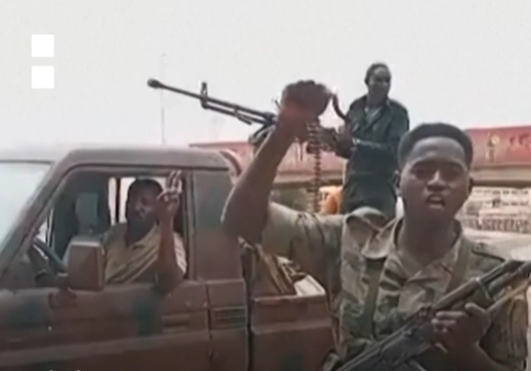(Al Jazeera Media Network) A barrage of artillery shells hit a poor neighbourhood on May 31 in Khartoum, Sudan’s capital.
Residents say the attack killed at least 18 civilians and wounded 106 others in a local market, yet nobody knows if it came from the Sudanese army or the paramilitary Rapid Support Forces (RSF) – the two sides that have plunged the country into war.
Residents said the RSF deployed to the neighbourhood shortly after the incident, resulting in continuing street battles with the army and fears that more civilians will die in the crossfire.
“The area is still being bombed as a result of the clashes between the two parties,” said Fadeel Omer, 25, an activist from Mayo, the area where the attack took place.
“But with [the RSF’s] deployment in the area, there is more fear of them than the [army’s] bombing,” he added.
The market attack could be the beginning of a serious escalation. A day earlier, the army pulled out of ceasefire talks in Jeddah, Saudi Arabia. The announcement may suggest top army commander Abdel Fattah al-Burhan is preparing to wage a major offensive to retake the capital from the RSF, residents and experts told Al Jazeera.
Al-Burhan said he was open to resuming talks three days later, yet the RSF claimed the army’s conditions were impossible to meet. An army official reportedly said the army called for the RSF to stop occupying people’s homes and hospitals before resuming negotiations.
Both sides have since been hit with U.S. sanctions in an effort to target their war chests. With neither side budging, some civilians feared they would bear the brunt of a sharp uptick in violence.


